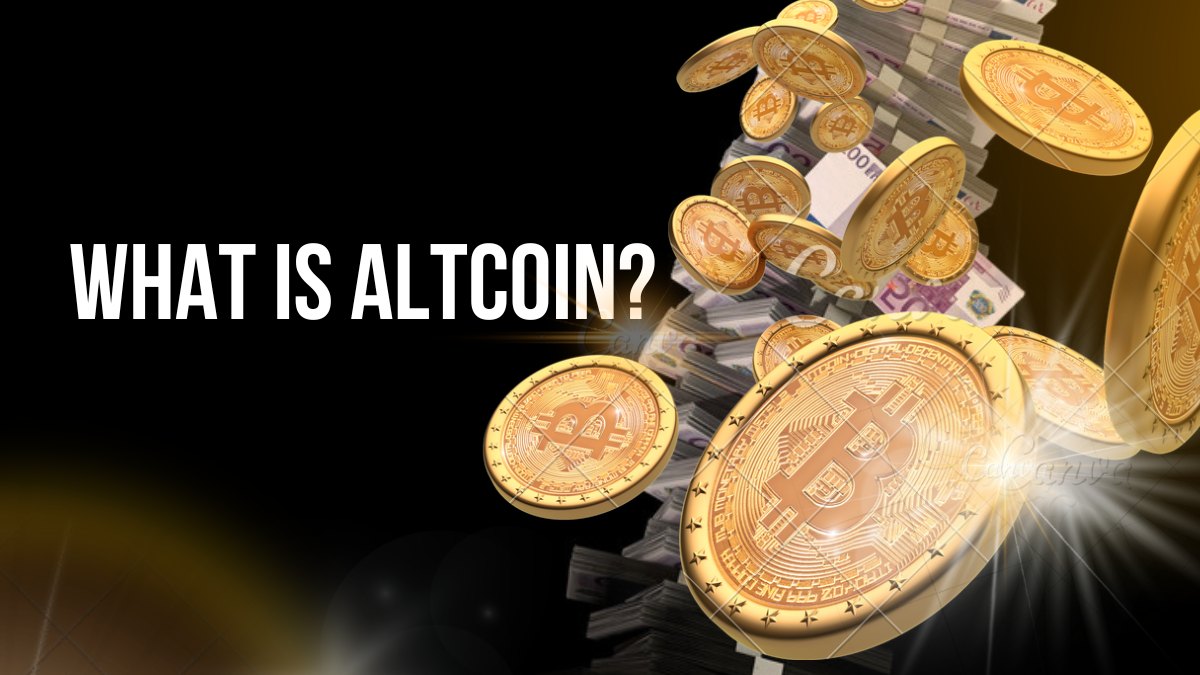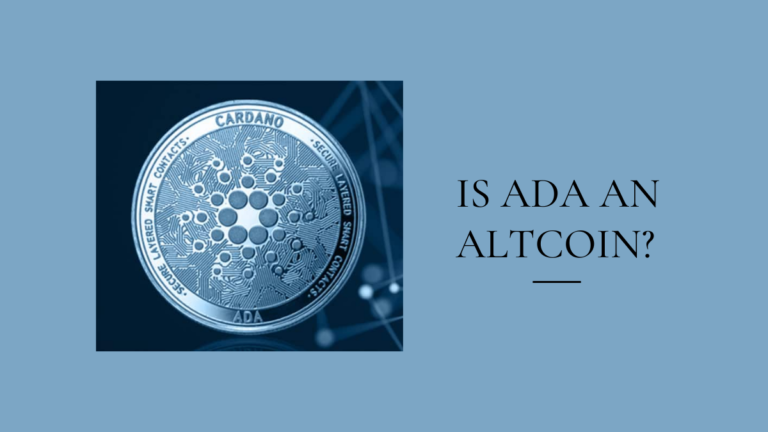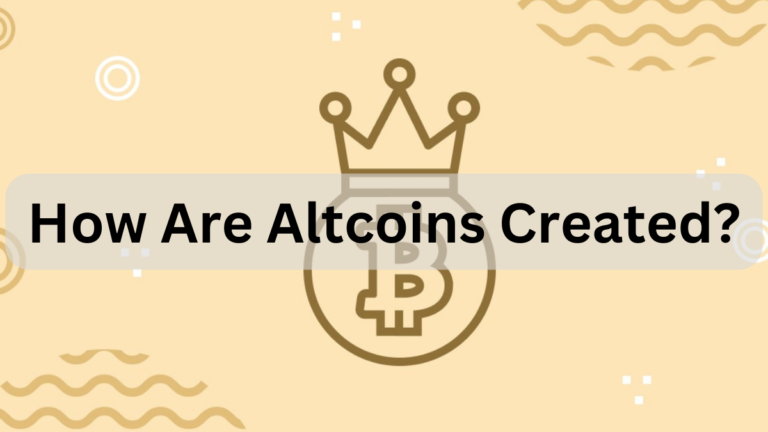What is Altcoin?
Are you tired of hearing about Bitcoin and want to explore the world of alternative cryptocurrencies? Look no further than altcoins! These digital assets offer unique features, technology, and potential for investment. In this blog post, we’ll dive into what exactly an altcoin is and why it’s worth paying attention to in the ever-evolving landscape of cryptocurrency. Get ready to expand your crypto horizons.
An altcoin is any digital currency other than Bitcoin. The term is short for alternative coin, or alternate coin. Altcoins are a decentralized form of currency that uses cryptography to secure its transactions and to control the creation of new units.
Bitcoin, the first and most well-known cryptocurrency, was created in 2009. Since then, hundreds of altcoins have been created. While some are very similar to Bitcoin, others have made significant changes to the original code. Some common features of altcoins include:
- A different economic model than Bitcoin
- A different hashing algorithm than Bitcoin
- A different proof-of-work system than Bitcoin
- A different blockchain structure than Bitcoin
- Features that improve upon the original Bitcoin design
What is an Altcoin?
An altcoin is a cryptocurrency that is an alternative to Bitcoin. Altcoins are similar to Bitcoin in that they are decentralized and use cryptography to secure their transactions. However, altcoins differ from Bitcoin in several key ways.
First, altcoins tend to have a more limited supply than Bitcoin. Second, altcoins often have different algorithms for mining than Bitcoin, which can make them more or less difficult to mine depending on the specifics of the coin.
Altcoins typically have different purposes than Bitcoin; while Bitcoin was designed as a general-purpose currency, many altcoins are designed with specific purposes in mind, such as supporting anonymous transactions or smart contracts.
Different Types of Altcoins
What is altcoin? Altcoins are alternative cryptocurrencies to Bitcoin. They are also known as altcoins because they are alternatives to Bitcoin. There are currently over 1,600 altcoins in existence and more are being created every day.
Altcoins can be divided into two categories: forks and clones. A fork occurs when the original cryptocurrency is split into two or more new cryptocurrencies. For example, Ethereum Classic (ETC) is a fork of Ethereum (ETH). A clone is a copy of an existing cryptocurrency with a few changes to its code. For example, Litecoin (LTC) is a clone of Bitcoin (BTC).
The majority of altcoins are forks or clones of Bitcoin. However, there are a few notable exceptions such as Ethereum (ETH), Ripple (XRP), and Cardano (ADA). These three cryptocurrencies are often referred to as the “big three” of altcoins.
Different investors have different reasons for investing in altcoins. Some investors see altcoins as a way to hedge their investment in Bitcoin. Others view altcoins as a way to invest in early-stage technologies that have the potential to disrupt existing industries. And still others simply view altcoins as a way to make money by trading one cryptocurrency for another.
Pros & Cons of Investing in Altcoins
When it comes to investing in altcoins, there are a few pros and cons to consider before making your decision. On the plus side, altcoins tend to be much less expensive than Bitcoin and other major cryptocurrencies.
This means that you can get more bang for your buck when investing in altcoins. Additionally, altcoins tend to be more volatile than Bitcoin, which can lead to greater profits (or losses) in a shorter period of time. However, this volatility also means that altcoins are more risky investments than Bitcoin or other major cryptocurrencies. So, if you’re thinking about investing in altcoins, be sure to do your research and only invest what you can afford to lose.
How to Choose the Right Altcoin for Investment?
When it comes to altcoins, there are a few things you need to take into account before making an investment. The first is the coin’s market cap. This is simply the total value of all the coins in circulation. A higher market cap generally means a more stable coin. You also want to look at the coin’s trading volume. This is how many times the coin is being traded on exchanges every day. A higher volume usually means there is more interest in the coin and it is easier to buy and sell.
Another important factor to consider is the team behind the coin. Do they have a good track record? Are they actively developing the project? Is there a strong community backing the project? These are all important factors that can impact the future success of an altcoin.
You need to make sure you are comfortable with the risks involved in investing in altcoins. These coins are often much more volatile than Bitcoin and can lose a lot of value very quickly. Make sure you know what you are getting into before investing any money.
Where to Buy and Trade Altcoins?
If you’re looking to invest in altcoins, there are a few different ways to do so. You can buy altcoins on cryptocurrency exchanges, trade them on digital asset exchanges, or purchase them through a broker.
Cryptocurrency exchanges are online platforms where you can buy and sell cryptocurrencies. Some popular cryptocurrency exchanges include Binance, Coinbase, and Kraken. When buying altcoins on a cryptocurrency exchange, you’ll need to create an account and deposit fiat currency or Bitcoin into your account. Once your account is funded, you can browse the exchange’s selection of altcoins and place an order to buy the ones you want.
Digital asset exchanges are similar to cryptocurrency exchanges, but they often offer more assets than just cryptocurrencies. On a digital asset exchange, you can trade altcoins for other cryptos or fiat currencies. Some popular digital asset exchanges include Bittrex and ShapeShift.
Brokers are another option for buying altcoins. Brokers act as intermediaries between buyers and sellers and typically charge a commission for their services. When using a broker to buy altcoins, you’ll need to create an account with the broker and deposit fiat currency into your account. Once your account is funded, you can browse the broker’s selection of altcoins and place an order to buy the ones you want.
Strategies for Investing in Altcoins
There are a few key things to keep in mind when investing in altcoins:
- Do your research. As with any investment, it’s important to understand what you’re buying into. With altcoins, this means familiarizing yourself with the project and its roadmap. What problem is the project trying to solve? What is the team behind it? How far along is the project?
- Consider the risks. Investing in altcoins is risky, as prices can be highly volatile and some projects may turn out to be scams. Make sure you understand the risks before investing any money.
- Decide how much you want to invest. Don’t invest more than you can afford to lose!
- Use a reputable exchange. When buying or selling altcoins, make sure you’re using a reputable exchange like Binance or Coinbase Pro.
- Have a long-term perspective. Don’t expect to get rich quick off of your altcoin investments – it takes time for projects to develop and for prices to stabilize. Hold onto your coins for the long haul and reap the rewards down the road.
Conclusion
Altcoins are a great way for investors and traders to diversify their portfolios and hedge against the volatility of the cryptocurrency market. They provide an excellent opportunity for users to invest in projects that have potential but may not be as well-known or supported as Bitcoin, allowing them to benefit from potentially high returns.
With so many altcoins available today, it’s important to do your research before investing, since some coins may turn out to be scams. Nonetheless, with the right approach, you can find yourself some exciting investments in altcoins that could pay off handsomely over time.






